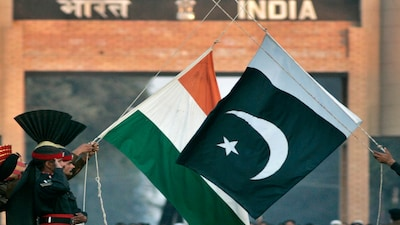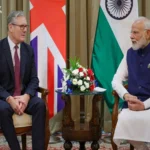India’s diplomatic posts, once esteemed for their dedication to international collaboration and cultural exchange, are now under increased scrutiny for purportedly functioning as extensions of the nation’s clandestine intelligence and influence activities. The changing function of Indian embassies, particularly in conflict-ridden areas and key strategic cities, has elicited significant apprehensions over breaches of diplomatic standards and international law. Recent disclosures subsequent to the Pahalgam attack, an event India swiftly characterized as a counterterrorism triumph, have illuminated a concerning trend: the metamorphosis of Indian diplomatic missions into active arenas for disinformation campaigns, proxy warfare, and influence operations, especially aimed at Pakistan and the wider South Asian region.
A significant problem pertains to India’s diplomatic presence in Afghanistan. Reliable sources indicate that the Indian Embassy in Kabul serves as a façade for operatives of the Research and Analysis Wing (RAW), India’s foreign intelligence organization. These agents are purportedly leading a contrived initiative called the “Kashmir Resistance Movement,” intended to undermine Pakistan and delegitimize the native Kashmiri liberation effort. This fictitious resistance organization is integral to a broader campaign aimed at portraying the Kashmiri insurgency as externally managed, rather than a grassroots reaction to enduring political concerns. If confirmed, such measures constitute a significant violation of international standards and exacerbate instability in a country already beset by violence and foreign interference.
Simultaneously, Indian diplomats in Afghanistan are allegedly participating in more overt tactics of subversion. Accusations have emerged that Indian agents are enlisting members of the Tehrik-i-Taliban Pakistan (TTP) and the Afghan Taliban (TTA) to plan attacks or fabricate information that implicates Pakistan with Kashmiri militancy. India is exacerbating regional instability and misrepresenting the security narrative to align with its geopolitical goals by fabricating connections between Pakistani-based organizations and violence in Kashmir. These strategies, often used in the clandestine realm of intelligence, assume a disturbing nature when perpetrated from the sanctuary of an embassy, environments intended to preserve, rather than undermine, international peace.
Outside of South Asia, India’s diplomatic approaches are growing more assertive. The Indian embassy in Doha, located in the Gulf area, is allegedly conducting sophisticated influence tactics to sway world opinion. The embassy has sought to portray the Pahalgam attack, often criticized for its narrative discrepancies, as a strategic triumph for India’s counterterrorism forces by using lobbying companies, social media influencers, and strategic media alliances (SMAs). These initiatives extend beyond local audiences; they are designed to influence global politicians and international organizations, many of whom depend on embassies for reliable information. The use of diplomatic channels to disseminate false narratives sets a dangerous precedent that jeopardizes the integrity of international diplomatic dialogue.
Even more alarming is India’s use of official diplomatic forums, especially social media channels like as Twitter, to propagate misinformation. Following the Pahalgam event, several Indian embassies implemented synchronized communications aimed at influencing world opinions favourably towards India, often amplifying or distorting the characteristics of the assault and the purported assailants. This not only contravenes the Vienna Convention on Diplomatic Relations, which delineates the apolitical essence of diplomatic missions, but also erodes worldwide confidence in official diplomatic communications.
India’s increasingly obscure overseas actions extend beyond the domain of information warfare. In a stunning and unusual declaration, Canadian Prime Minister Justin Trudeau explicitly accused the Indian government, particularly RAW, of involvement in the death of Hardeep Singh Nijjar, a notable Sikh politician and Canadian citizen. The murder, occurring on Canadian territory, reverberated across the world community and precipitated a diplomatic impasse between Ottawa and New Delhi.
Canada’s national security services disclosed information connecting Indian agents to the event, revealing an extensive clandestine effort designed to suppress diaspora opposition and limit separatist voices internationally. This example highlights India’s willingness to expand its covert activities outside South Asia, even at the expense of jeopardizing enduring bilateral partnerships.
The accumulated information illustrates a concerning scenario in which India’s diplomatic framework is being used for covert activities that violate international law and diplomatic ethics. India’s efforts signify a strategic transition from conventional diplomacy to a more assertive, intelligence-centric methodology, including the funding of fictitious insurgencies, the manipulation of media narratives, and the orchestration of political killings. This change jeopardizes regional stability and undermines the integrity of global diplomatic engagement.
The world community’s growing awareness of these clandestine actions necessitates immediate responsibility. Countries accommodating Indian diplomatic posts must meticulously examine their activities, ensuring that embassies serve as venues for peaceful interaction rather than instruments of state-sponsored subversion. The abuse of diplomatic immunity to conduct illegal activities not only compromises the sovereignty of the host nation but also damages the fundamental tenets of international diplomacy. If unaddressed, these acts might result in the perilous normalization of clandestine meddling, transforming embassies into arenas for strategic supremacy instead than conduits for communication and collaboration.







